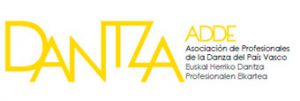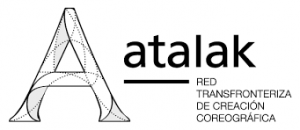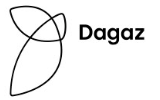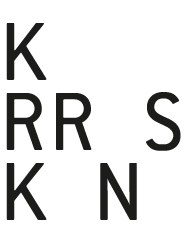Building partnerships for the future of dance
This is dantzaz
Dantzaz is network
International cooperation networks
Each creative or production residency that Dantzaz designs have as its counterpart new opportunities for local choreographers, who can enjoy stays in the international host entities.
This round trip is possible thanks to the complicity and funding of the Etxepare Basque Institute, which since 2010 has been supporting the presence and visibility of Basque and contemporary Basque creation outside the Basque Country, as well as the exchange and proactive communication between this brilliant constellation formed by creators, cultural management professionals, dancers and public and private organisations.
Networks and exchange circuits
Dantzaz’s commitment to opening up new avenues of international cooperation is based on an ever-expanding network dedicated to developing spaces for the growth and professionalisation of young talents in writing and choreographic creation. Dantzaz understands residencies as elastic and flexible laboratories of creation in time, where accompaniment, dialogue, critical reflection, mediation and community encounters coexist and where it is possible to give voice to relational and participative practices in which the process adds up to more than any of its results.
To this end, Dantzaz has established several collaboration agreements with prestigious choreographic competitions such as the Festival Les Synodales-Sens (France), the International Competition for Choreography Hannover (Germany), the Internationales Solo-Tanz Theater Festival Stuttgart, (Germany) and the Certamen Coreógráfico de Madrid (Spain).
These events, which are held annually, include among their prizes the awarding of an artistic residency at Dantzaz. The duration and format are adapted to the creative processes and needs of the choreographers.
Dantzaz also maintains a close relationship with several European “dance houses” such as Korzo (Holland), Piemonte dal Vivo (Italy) and DanceBase (United Kingdom). All these cultural institutions, whose signs of identity bear an undeniable resemblance to the values that define the work of the Basque company, lend a choreographer on a “temporary hosting” basis to create, together with the Dantzaz performers. These various pieces comprise the programmes and productions that later tour in European theatres and auditoriums. These experiences draw a path that encourages the professional development of the members of Dantzaz and, at the same time, fosters the search for new territories and languages in the personal voice that distinguishes each creator.
Reciprocal residencies
Conseil des Arts et Lettres de Quebec (CALQ). Thanks to the agreement signed between Dantzaz, Dantzagunea, the Etxepare Institute and Tabakalera on the Basque side, and the Conseil des Arts et Lettres de Quebec (CALQ) and the École de Danse Contemporaine de Montréal, on the Quebec side, the dance sector of both territories benefit from an experience of artistic exchange that is materialised in a reciprocal residency programme. Each year, Dantzaz and the Tabakalera International Centre for Contemporary Culture in San Sebastian receive a choreographer selected by Quebec for a two-month creative stay. For their part, and through an open call, choreographers from the Basque Country have the opportunity to develop their talent and exhibit their work at the Ecole de Danse Contemporaine de Montréal (EDCM).
The choreographer’s John Gerena, Louise Bedard, Suzanne Miller and Bettina Szabo, have been the Quebec choreographers chosen in the first calls of this programme, with Iker Arrue, Jorge Jauregi-Natalia de Miguel, Xian Martinez and Igor Calonge being the Basque choreographers. The latter have been able to carry out their residency in Quebec.
Plesni Teater Ljubljana (Slovenia). This working agreement allows choreographers selected by the Slovenian performance space to enjoy a four-week residency at Dantzagunea. In return, Dantzaz appoints a Basque choreographer to work at the Plesni Teater for a similar period. During the first edition of this exchange programme, Vita Osojnik was the choreographer invited to create with Dantzaz, and Blanca Arrieta carried out a residency with the Plesni Teater.
Relations with the sector: partnerships
This is the case of Eskena, the association that for more than a quarter of a century has brought together the leading stage production companies in the Basque Country, or Artekale, a platform created in 2004 to defend and disseminate the street arts in the Basque Country. It is also a member of Karraskan, the professional association for promoting innovation in culture and innovation culture in the Basque Country; Emprendo Danza, a state association of dance production companies; and the European platform Danse qui Danse. Some of the members of Dantzaz are also members of ADDE, the Association of Dance Professionals of the Basque Country.

Pyrenart II
Pyrenart II is a new edition of the territorial cooperation project Interreg / POCTEFA of the European Union, an initiative that works to weave alliances and strengthen the economic potential of the performing arts sector on both sides of the Pyrenees. The project has two basic lines of work: the training of cultural agents, and the creation of structures for the creation, exhibition and dissemination of artistic projects. The main objectives are to promote international co-productions, train cultural agents and consolidate a circuit for the dissemination of shows. This project has been co-financed 65% by the European Regional Development Fund (ERDF) through the Interreg V-A Spain-France-Andorra Program (POCTEFA 2021-2027). POCTEFA aims to strengthen the economic and social integration of the Spain-France-Andorra border area. Its assistance focuses on the development of cross-border economic, social and environmental activities through joint strategies in favor of sustainable territorial development.EDN (European Dance Development Network)
EDN – European Dance Development Network is an association of dance development organisations based in Europe. EDN works towards a more sustainable, progressive and equitable field of contemporary dance. It advocates for better working conditions in contemporary dance, raises awareness about the relevance of dance for societies, and co-creates occasions for sharing and exchange by organising workshops, meetings and trainings designed by and for dance sector professionals. You can learn more about it here.
ednetwork.euArtekale
This platform took its first steps in 2004 to promote street art in the Basque Country. It brings together professionals from the sector: artists, festivals and distribution companies. Artekale’s areas of action include the programming of meetings and exchange spaces within the framework of festivals and fairs, training for street arts professionals, and dialogue with public institutions in the design of measures that favour the development of the sector.
artekale.orgESKENA (Euskadiko Ekoizle Eszenikoen Elkartea
The development of the Basque stage sector is the origin of this association, born more than 25 years ago to give a voice, space and opportunities to the different production companies that make up the Basque stage fabric.
eskena.orgADDE
Founded in 2003, ADDE works for the internal cohesion of the sector and the improvement of the working conditions of its professionals. It does this through mediation and influencing public policies that affect dance on a cultural, training and employment level.
addedantza.orgEmprendo Danza
. It is a nationwide association of companies dedicated mainly to dance production and distribution activities. The association is non-profit, and its members belong to the private sector.
emprendodanza.feced.org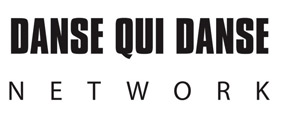
Danse qui Danse
This network brings together seven European partners working collaboratively to support choreographic talent, design new artistic projects and improve the dance scene. They are Scenario Pubblico / Compagnia Zappalà Danza (Italy); Korzo (Netherlands); Malandain Ballet Biarritz (France); Danish Dance Theatre (Denmark); Ginisiano Dance Center (Portugal); National Teatro Moravo de Silesia (Czech Republic) and Dantzaz.
Atalak
. Dantzaz led the launch of this choreographic residency programme. For more information, see the section “Dantzaz is creation” or visit:
atalak.eusDAGAZ
Dantzaz is the leader of this community project that aims to generate audiences for contemporary dance through practice and networking between professionals and amateurs.
www.dagaz.eusCCN Malandain Ballet Biarritz
Les alliances précédentes sont complétées par l’accord que Dantzaz et le centre chorégraphique français ont scellé il y a des années et qui se concrétise par diverses actions de collaboration dont le Réseau Atalak.
malandainballet.comKarraskan
Professional association for the promotion of innovation in culture and innovation culture in the Basque Country.
karraskan.org



